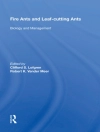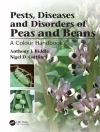PREBIOTICS AND PROBIOTICS IN DISEASE REGULATION AND MANAGEMENT
The book covers all the emerging technologies and the challenges related to the synthesis and application of prebiotics and probiotics including the recent developments in the delivery of prebiotics, probiotics for the treatment of various diseases, the immune-boosting activity of the emerging prebiotics and probiotic ingredients, and the anti-cancer and anti-tumor potential
The demand for biobased products is increasing enormously, among which are prebiotic oligosaccharides and probiotics, which occupy a major share of the food industry. Even though the majority of agro waste is currently being used for the production of 2G biofuels, agro waste such as citrus peel, sugar beet pulp, copra meal, and wheat husk can be considered for the production of prebiotic oligosaccharides. Prebiotics are dietary fibers that are selectively fermented by the microbes present in the gut and promote the growth of beneficial bacteria in the intestine and regulate the growth of harmful bacteria.
The book highlights the importance of nutraceuticals (prebiotics, and probiotics) in maintaining gut homeostasis, prevention, and treatment of gut-related disorders, as anti-cancer agents, immune-modulatory agents, and treatment of metabolic disorders. It brings out the current challenges involved in the formulation and development of nutraceuticals, together with the application of nanotechnology and bioinformatics-based approaches to study the effect of nutraceuticals on oral health, and gut microflora in a very precise way.
Audience
The book will be read by food scientists and biotechnologists, as well as researchers in nutraceuticals and food processing research companies, nutraceutical/supplement product developers, and those in pharmaceutical companies.
O autorze
Rajesh K. Kesharwani, Ph D, is an associate professor in the Department of Computer Application, Nehru Gram Bharati (Deemed to be University), Prayagraj, India. He has more than 11 years of research and 9 years of teaching experience in various institutes in India. He has authored more than 55 peer-reviewed articles, 24 book chapters, and edited 15 books. His research fields of interest are medical informatics, protein structure and function prediction, computer-aided drug designing, structural biology, drug delivery, cancer biology, nano-biotechnology, and biomedical sciences.
T. Jagan Mohan Rao, Ph D, is an assistant professor in the Department of Biotechnology, NIT, Andhra Pradesh, India. He has research experience in the synthesis and production of poly and oligosaccharides. In his postdoctoral research in Brazil, he produced prebiotic oligosaccharides in orange juice by using an immobilized and co-immobilized enzyme system, while in South Korea, he worked on prebiotic properties of pectic polysaccharides using standard intestinal bacterial cultures and published his research findings in reputed international SCI-Journals.
Raj K. Keservani, MPharm, is an associate professor in the Faculty of B. Pharmacy, CSM Group of Institutions, Prayagraj, India. He has more than 12 years of academic (teaching) experience from various institutes in India in pharmaceutical education. He has published more than 30 peer-reviewed papers in the field of pharmaceutical sciences in national and international journals, 1 patent, 43 book chapters, three co-authored books, and 19 edited books. His research interests include nutraceutical and functional foods, novel drug delivery systems (NDDS), transdermal drug delivery/drug delivery, health science, cancer biology, and neurobiology.












